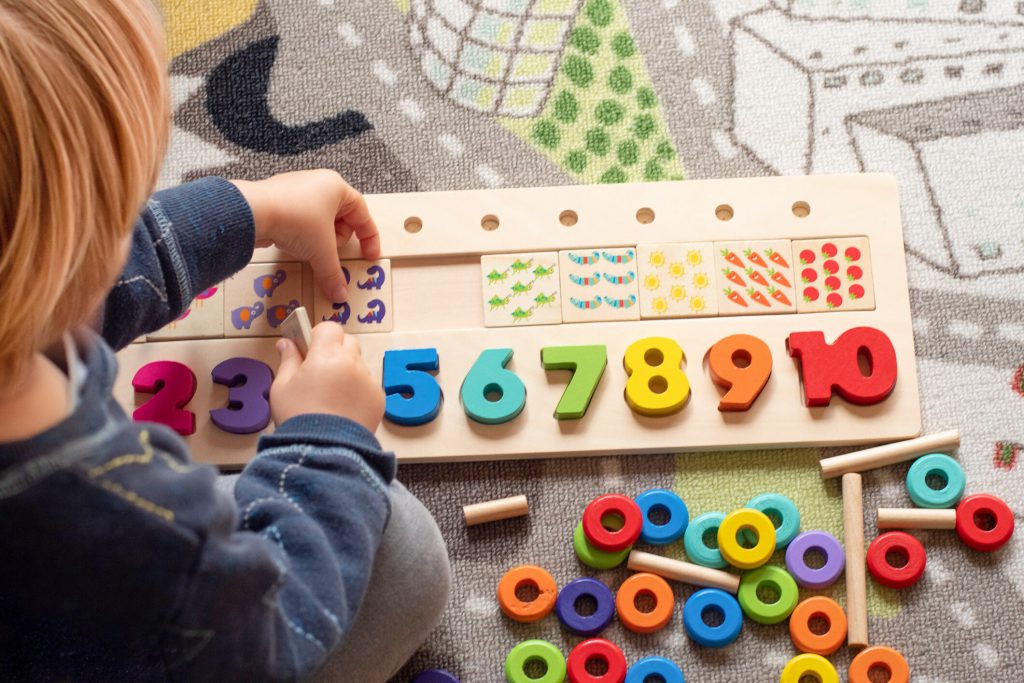How much does child care cost in 2022?
Index
How much is childcare?
Childcare cost per day in Australia ranges from about $70 to $190 for long day care options. The national day care average cost is $118.36. However, if you have eligibility for Child Care Subsidy (CCS payment), you could pay substantially less. A CCS payment can reduce your out of pocket expense for childcare by up to 85%, depending on your household income and circumstances.
It’s hard to find free childcare unless you have retired parents willing to help. The Child Care Subsidy takes some of the pressure off for families.
Childcare fees range depending on the type of child care you choose, the provider and your location. In this article we will explore child care prices for long day care, family day care fees, pre-school or kindy fees and before and afterschool care fees, as well as how the childcare subsidy might help your family.

What affects childcare costs?
There are many factors that affect the total cost of childcare for your family. These include:
- The type of child care you choose
- How many days a week your child attends care
- How many children you have needing care
- Your child/ren’s age
- Whether you have eligibility for child care subsidy to assist with child care costs
- Whether the service you choose charges fees for days your child/ren are away
- If they charge fees for public holidays when they are closed
- If they provide extras, such as nappies and meals.
Want to find child care providers in Sydney, Melbourne, Brisbane, Adelaide or Perth?
How much does child care cost per day?
How much is childcare per day? Child care cost per day in Australia depends on your personal and financial circumstances, and the type of child care service you need. Here are some typical prices you might expect to pay, without the childcare rebates applied.
Childcare fees:
Here’s a breakdown of child care fees by type of child care service (pre child care subsidy).
Child care centre cost for long day care: $70-$188 per day
Pre-school/kindy fees: $45-$80 per day
Family day care: $7.50-$16.80 per hour (depending on location and service)
Before and afterschool care fees:
Before and after school care fees are generally cheaper, because they are only needed for an hour or two outside school hours. You can expect to pay:
- $15-$30 for a morning session
- $25-$45 for an afternoon session

How does child care subsidy work?
Childcare costs can take a heavy toll on the family budget. However, the Australian government fee assistance can help reduce overall costs. This includes the Child Care Subsidy and the Additional Child Care Subsidy. The child care subsidy is based on your combined family income. Both of these childcare subsidies are paid directly to the child care provider you choose.
For each subsidy there are specific eligibility requirements:
Childcare subsidy eligibility
The amount of childcare subsidy you receive will be determined by your household income, the recognised activities you undertake, and the type of care you opt to use. The hourly rate cap is based on the type of service you use. For instance, the maximum hourly rate for centre based care for long days in 2021/2022 is $12.31. You can use an online child care subsidy calculator to help determine your CCS payment.
You must use approved child care services to be eligible for the Child Care Subsidy. The Australian Government guidelines for approved services include:
- Centre-based day care, with long day and occasional day care option
- Family day care
- Before and afterschool care
- Vacation care
- In-home care (additional conditions apply).
To be eligible to receive CCS, you or your partner must be an Australian resident (some exemptions apply), and responsible for childcare costs for at least two nights a fortnight, or 14% of the time. Whether you’re a parent, step-parent, grandparent, foster parent or kinship carer, you can apply for the child care benefit.
Furthermore, your child must be immunised or on a catch up schedule (some exemptions apply) and must not be attending secondary school to be eligible for payment. For children attending secondary school that are under the age of 13 years or have a disability, you might still be able to get a child care rebate.
Additional child care subsidy eligibility
If you’re child has a grandparent, great-grandparent or step-grandparent who provides 65% or more of the care for them throughout the week, they may be able to access the Additional Child Care Subsidy. The carer will also need to be receiving income support, such as the Age Pension, to qualify.
If your family income is below a set limit and you’re studying, looking for work, or training, you might also be eligible for the Additional Child Care Subsidy. Usually, you need to have an active job plan and be receiving a Centrelink payment. These payments include:
- Parenting payment
- Newstart allowance
- Youth allowance
- Disability support pension
- Austudy
- Carer payment
- Farm household allowance
- Means-tested ABSTUDY payment
- Special benefit (additional conditions apply)
You may also be able to get childcare payments if your family is experiencing temporary financial hardship, such as job loss, leaving your home due to family violence or your home being severely damaged (flood, fire, etc).
Other child care costs
When considering your childcare costs and options, you’re not just limited to formal care arrangements. Depending on your family, different care situations like a live in au pair or a nanny might suit your needs. Here are some alternative child care prices to consider:
- Au pair: $350-$450 per week as pocket money and meals and board. If you find your au pair through an agency, you can expect to pay them a fee too.
- Babysitter: If you hire a babysitter through an agency, you can expect to pay $25-$35 per hour plus an agency fee. You may be able to find a local babysitter for much cheaper rates, ranging between $12 and $25 per hour, depending on their age and experience.
- In home care: $30-$35 per hour
- Nanny: The average hourly rate for a nanny is $30-$45 per hour for a live-in or high end live-out nanny. You may need to pay an agency fee and super.
- Nanny sharing: This is a much more affordable option if you have some flexibility. Nanny sharing rates start from $17 per hour per family, and you will likely pay an agency fee.

Choosing a child care service
If you’re searching for “childcare near me”, it’s important to find quality child care providers with an excellent reputation. It’s a good idea to make an appointment to visit your local childcare centres to see the grounds and facilities, and speak to the educators to understand if they will be the right fit for your family.
When comparing and deciding on a child care service, make sure you ask for as many details as possible. This includes:
- The hours and days they operate and whether that fits your family’s schedule
- If they have any vacancies
- Whether the child care fees suit your budget
- Whether there is a wait list fee
- If there are further costs involved besides the regular fee charged
- If they have the resources to support children with additional needs
- Do they offer kindergarten or long day care options?
You can ask the child care centre directly what their cost of childcare is and use a childcare subsidy calculator to find out what you can expect to pay after rebates. Many approved child care centres have waiting lists, so it’s important to book in early to reserve a spot for your child. Find local child care providers on Yellow Pages and read their reviews.
*All prices quoted were sourced at the time this cost guide was written and should only be used as an estimate.
